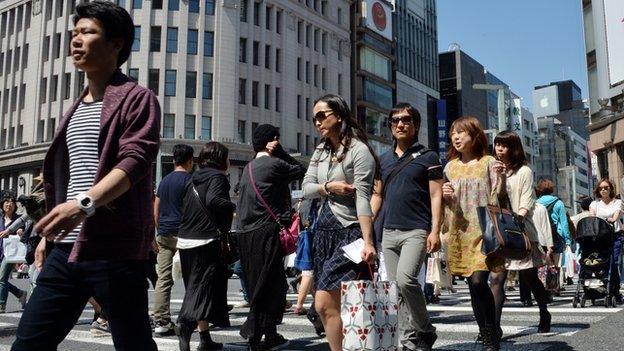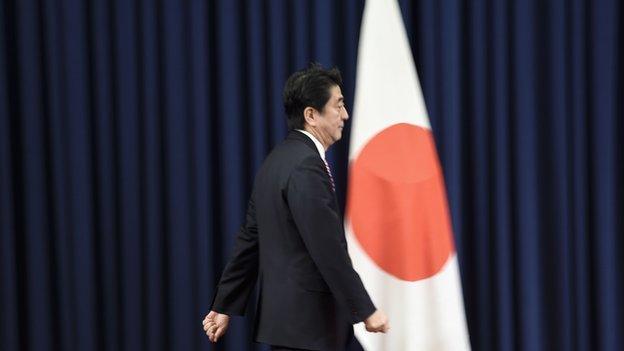UK, Japan and 1% inflation
- Published
- comments

The Bank of England (BoE) forecasts that price rises may fall below 1% temporarily over the next six months and won't hit the 2% target for perhaps 3 years.
So, the BoE now expects that the first interest rate rise could be delayed to next autumn. It means that inflation could be more than one percentage point below target and it would be the first time that the BoE governor has had to write a letter to the chancellor due to inflation being too low.
It's in stark contrast to the many years of letters when inflation was above target.
Deflation worries
Inflation slowing to 1% in Japan was followed by the Bank of Japan (BOJ) unleashing a massive amount of cash injection that surprised even markets that had gotten used to the BOJ's propensity to print.
Prices were moving further away from their target of 2% and the BOJ feared that the country would not see the end to 15 years of deflation after some promising signs.
So, the Japanese central bank is now injecting 80 trillion yen, which is a staggering $720bn per year. That's equivalent to a new Switzerland each year (Swiss annual output is about $650bn).
Of course, there is no magic number for how quickly (or slowly) prices should rise. But, around 2% is what developed economies have largely settled on, which is just enough to get their economies going as price rises spur firms to produce but not so high that consumers see their incomes squeezed.
It's essentially the target for the major central banks of the Federal Reserve, BOE, BOJ, and European Central Bank, among others.
Likewise, 1% is not a threshold number. But, when inflation in the euro area slowed to below 1% around a year ago, prices continued to slow to eventually hit 0.3-0.4%.
Now, the eurozone is struggling with deflationary pressures so much that its central bank has started injecting cash by buying asset backed securities for the first time. And the ECB is under pressure to do more if the downward price trend continues.
Now, the UK isn't in the same boat as the euro area or Japan as its economy is growing rather better and the fall in global commodity prices is pushing down imported costs such as energy. Oil prices have fallen by over 20% since the summer, for instance. The global economy is also not growing well.

For Japan to end deflation, it needs stronger wage growth that generates more income.
One commonality among these countries, though, is weak wage growth.
We normally worry about higher inflation so we tend to think about wage growth as pushing up the costs of the goods and services that are produced which can mean higher prices. It's the so-called second order effect that can causes prices to stay higher and therefore inflation to take hold.
It works in reverse as well. If wages aren't growing well, then there is little underlying pressure on the cost of goods and services. And if firms don't see growing demand for their products, then they don't invest or pay more.
Japan in focus
So, for Japan to end deflation, it needs stronger wage growth that generates more income. More income means more money to spend on goods and services, which can lead firms to act.
But, for firms to pay workers more, they want to see more output from them too. And that's why there was even negotiation between the government and firms to try and get employers to raise wages first.
Again, each country is different and the UK doesn't have the same deflation concerns as Japan, nor does the euro area yet. But, one common trait is that weak wage growth is a contributor to lower prices.
Of course, it's a welcome change from the years where inflation was growing faster than wages and squeezing incomes. And, for some major economies, delaying rate rises isn't unwelcome if there's debt to be re-paid.
All countries, though, will eye the Japanese experience closely should inflation linger below 1%.